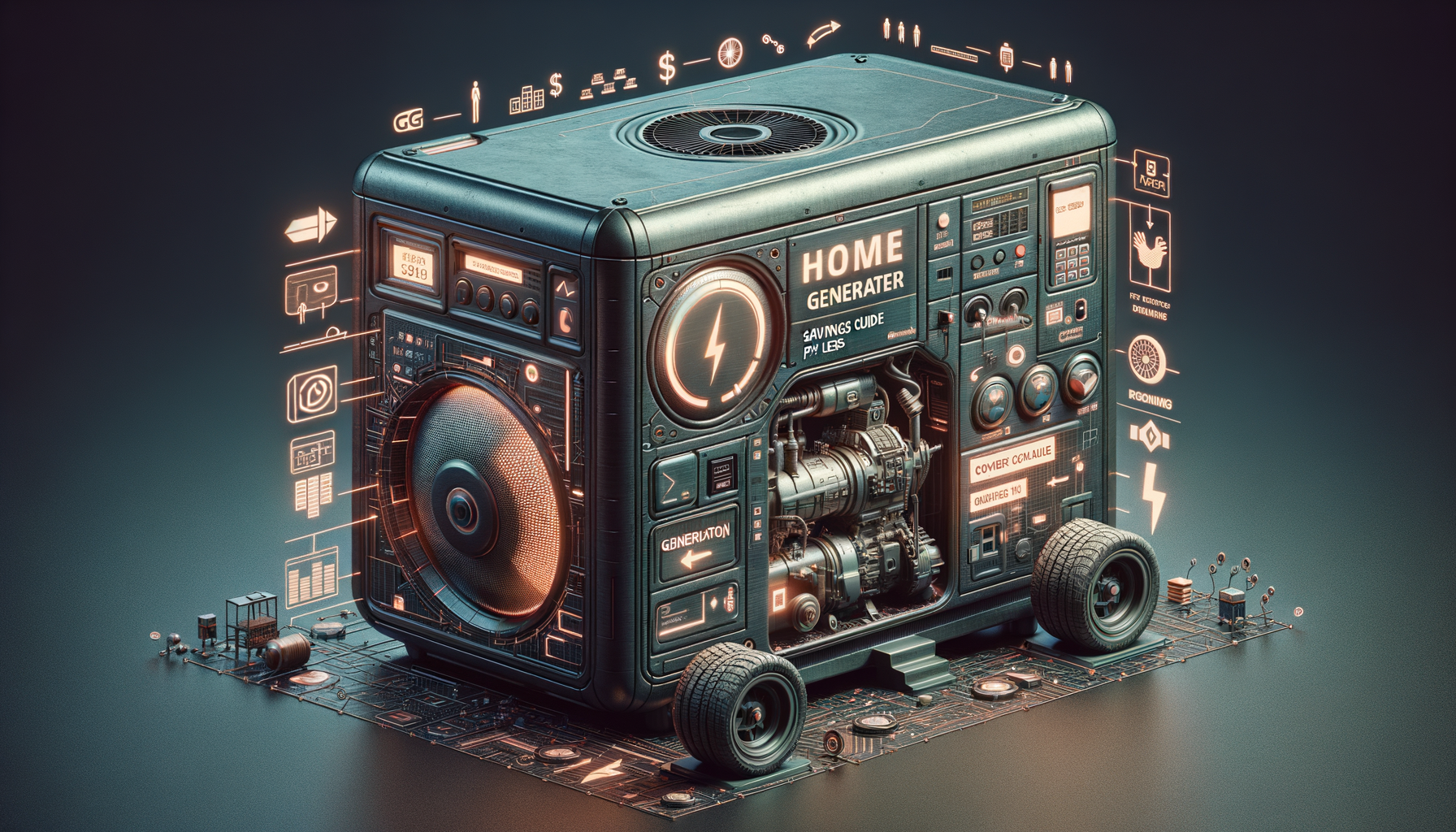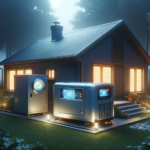Understanding the Basics of Home Generators
Home generators have become an essential part of modern living, offering a reliable backup power source during outages. Whether you’re dealing with a brief power cut or a prolonged blackout, a home generator ensures that your daily activities continue uninterrupted. These devices come in various types, primarily categorized into portable and standby generators. Portable generators are versatile and can be moved as needed, while standby generators are permanently installed and automatically kick in when the power goes out.
Portable generators are generally more affordable and are suitable for powering a few essential appliances. They run on gasoline or propane and require manual setup and operation. Standby generators, on the other hand, are more powerful and can provide electricity to the entire home. They are connected to the home’s electrical system and often run on natural gas or propane. The choice between the two depends largely on your power needs and budget.
When selecting a generator, consider factors such as power output, fuel type, and noise level. Power output is measured in watts, and it’s crucial to choose a generator that can handle the wattage of the appliances you intend to power. Fuel type affects the generator’s running cost and convenience, while noise level is important if you live in a noise-sensitive area.
Benefits of Owning a Home Generator
Owning a home generator comes with a host of benefits that go beyond just keeping the lights on. Firstly, it provides peace of mind, knowing that you won’t be left in the dark during a power outage. This is particularly important for those living in areas prone to severe weather conditions.
Generators also protect your home from damage. For instance, they can keep sump pumps running to prevent basement flooding, and maintain the operation of heating systems in winter to avoid frozen pipes. Moreover, they ensure that essential appliances like refrigerators and medical equipment continue to function, safeguarding your food and health.
From a financial perspective, a home generator can add value to your property. Potential buyers often see them as a valuable addition, especially in regions where power outages are common. Additionally, having a generator can reduce the risk of loss from spoiled food or water damage, saving you money in the long run.
- Ensures continuous power supply
- Protects home appliances and systems
- Increases property value
- Reduces financial losses from outages
Choosing the Right Generator for Your Home
Selecting the right generator involves assessing your specific power needs and understanding the different options available. Start by listing the appliances and systems you want to power during an outage. Calculate their total wattage to determine the necessary generator capacity. It’s advisable to choose a generator with a slightly higher capacity than your calculated needs to accommodate any additional loads.
Consider the fuel type that suits your situation best. Gasoline is readily available but may not be ideal for long-term storage. Propane and natural gas are cleaner and can be more convenient for standby generators. Also, consider the generator’s runtime and fuel efficiency, as these will affect operational costs.
Noise level is another important factor. Some generators are designed to operate quietly, which can be a significant advantage in residential areas. Look for models with noise ratings that comply with local regulations and your personal preferences.
- Assess power needs and calculate wattage
- Choose suitable fuel type (gasoline, propane, natural gas)
- Consider runtime and fuel efficiency
- Check noise levels and compliance with local regulations
Installation and Maintenance Tips
Proper installation and maintenance are key to ensuring your generator operates efficiently and safely. For standby generators, professional installation is recommended to ensure compliance with local building codes and safety standards. This includes setting up the transfer switch, which automatically shifts the power supply from the grid to the generator during an outage.
Regular maintenance is crucial for both portable and standby generators. This includes checking the oil level, inspecting the fuel system, and testing the battery. Manufacturers typically provide a maintenance schedule, which should be followed to keep the generator in optimal condition.
For portable generators, ensure they are stored in a dry location and protected from the elements. Before each use, inspect for any signs of wear or damage, and perform a test run to ensure functionality. Keeping the generator clean and free of debris can also extend its lifespan.
- Professional installation for standby generators
- Regular maintenance checks (oil, fuel system, battery)
- Proper storage and protection from elements
- Follow manufacturer’s maintenance schedule
Cost Considerations and Budgeting
Investing in a home generator requires careful budgeting and understanding the associated costs. The initial purchase price varies widely based on the type and capacity of the generator. Portable generators are generally less expensive, ranging from a few hundred to a couple of thousand dollars, depending on their features and power output.
Standby generators, while more costly upfront, offer greater convenience and power. They typically range from several thousand to over ten thousand dollars, including installation costs. However, their ability to power the entire home and automatic operation often justify the higher investment.
In addition to the purchase price, consider ongoing expenses such as fuel, maintenance, and potential repairs. Fuel costs will depend on the generator’s efficiency and the frequency of use. Regular maintenance, essential for longevity and reliability, can also add to the total cost of ownership.
When budgeting, factor in potential savings from preventing damage during outages and increasing property value. Weigh these against the costs to determine the most suitable option for your financial situation and power needs.
- Initial purchase price (portable vs. standby)
- Installation costs for standby generators
- Ongoing expenses (fuel, maintenance, repairs)
- Potential savings and property value increase








